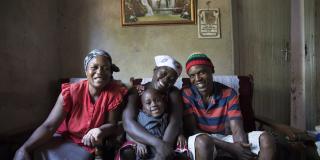
Struggling to cope with bereavement, drug addiction and family quarrels, JK finally found himself at rock bottom when he was sent to prison. Inside, he found a fresh sense of purpose and perspective as a VSO volunteer peer educator, and a new lease of life upon release.
My full name is Carbinate Tafadzwa Jokochoko, but people just call me ‘JK’. I grew up in Chavani, in the Masvingo province of Zimbabwe.
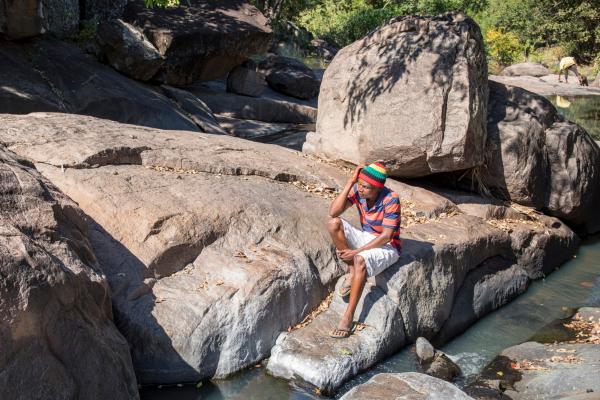
I was maybe 12 when my father left my mother to marry a new wife. He stopped supporting us. I had planned to study to become an electrician but now there was no money for fees.
I just stayed home, my uncle introduced me to drugs and I would spend my time in local bars. I would start each day smoking dagga [marijuana] early in the morning. From there onwards I would take each and every drug I could get my hands on through the day.
I ended up having quarrels with my relatives. One day, I decided to burn my uncle’s house. I was angry with him, and it was the best way I could think to make him suffer. When the police found me at the bar later, I confessed. I went with them and from there I ended up being sentenced to two years and ten months in prison.
Life in prison
At first it was difficult, very difficult. There were so many people around me, but I felt very lonely.
Thankfully, I got the chance to learn, cope and adapt through becoming a VSO peer educator. I started to do different activities, which kept my thoughts on new challenges every day.
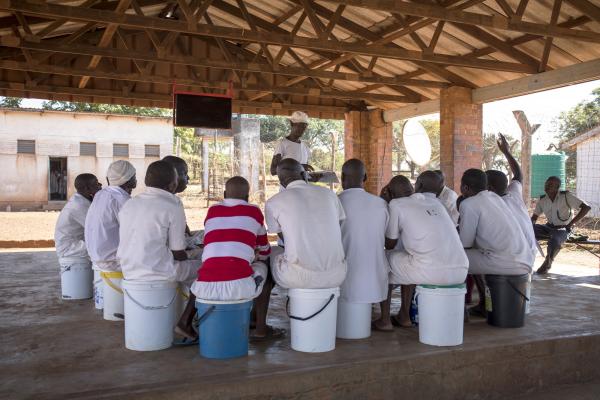
In Mutimurefu prison, my role through VSO also meant I was able to do something about the HIV issue. It’s something very close to my heart.
Fighting HIV: stigma and misunderstanding
When I was a child, my aunt unfortunately contracted HIV and died. She was not encouraged to seek medical treatment, but the help of traditional healers instead. These beliefs in our culture delay people in seeking help, and all the while their health is deteriorating. That is what caused her to die.
Because of her, I decided back then: ‘No, I don’t want any other person to die in this way.’
Our first HIV support group in prison was called Together as One. Our mission was to give information, encourage people to disclose their HIV status and then support them to adhere to medication and stay healthy.
That’s not easy in prisons here. Proper nutrition and ventilation are a real challenge, and you also used to find stigmatisation and discrimination, so people would not come forward with the problems they were facing.
That one support group managed to inspire others. By the time I was released, I was the coordinator for ten such support groups across the prison.
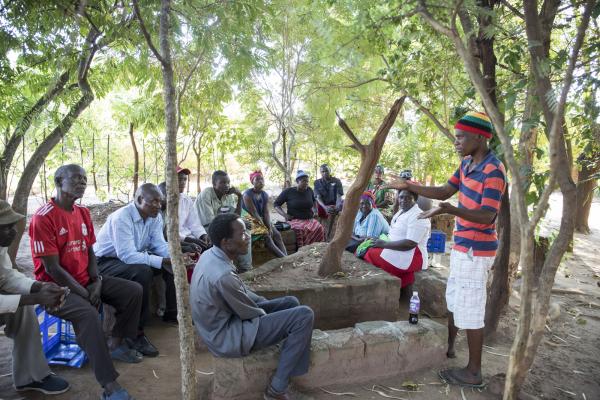
As my release date approached, I was hoping to do something great with the rest of my life. All I had was my imagination...
Life beyond prison
When I returned home after prison, I re-introduced myself as a peer educator. I explained what I had been doing, and the people accepted me.
We managed to form two HIV support groups here. I have a lot of relatives and neighbours in this community who are infected with HIV so it made sense to me to continue my work providing support, and encouraging people to disclose their status, adhere to treatment and stay healthy.
I am the sole provider for this household. I live with my mother, my wife, my kid and 26-year-old sister, who is training to be a teacher. I am paying her college fees and also my child’s school fees.
My kid is four years old. I named him Bright, because he is so intelligent. I want to work hard to see him succeed.
I have many ideas for projects now. I want to harness the potential that is here and for people to prosper without having to go somewhere else for work.
I want to see this community doing well, making an income with the resources, and to see my child and the next generation benefit from that.
I am never going back to prison. That is not a good place.
Find out more about our work in:
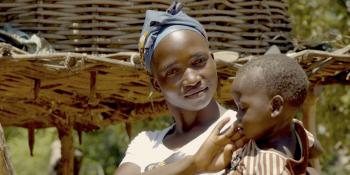
Zimbabwe
We've worked in Zimbabwe since 1982, building healthy communities with a focus on gender and prisoners' health.
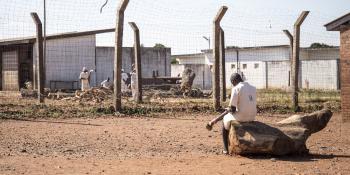
Improving the health and wellbeing of prison populations in Southern Africa
Improving prison health through an innovative combination of volunteer peer support, skills training, and advocating for change.
